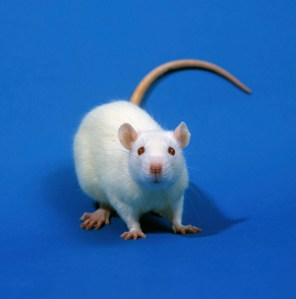
Visuals Unlimited/Corbis
A protein known for its role in Rett syndrome — a rare genetic brain disorder — also works to regulate cocaine addiction, new research shows.
In a study published today in Nature Neuroscience, Florida researchers were able to mimic in rats a human’s transition to cocaine addiction: the transition, that is, from controlled intake of the drug to compulsive intake. Rats that were exposed to cocaine over time saw increases in their levels of the protein MeCP2 expressed in the dorsal striatum, a region of the brain involved in executive function. These MeCP2 increases, it seems, then led to further cocaine cravings. Animals with access to cocaine, but in which MeCP2 levels were knocked down again to normal levels, appeared to lose interest in the drug — and they vastly reduced their self-administered drug intake.
Although this study is in rats and not, of course, in humans, the new results are part of a mounting body of evidence on the neurochemistry of addiction. They also hint, perhaps, at possible future treatments for compulsive drug-taking.

